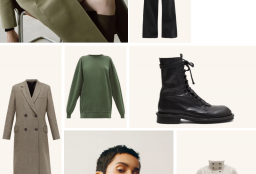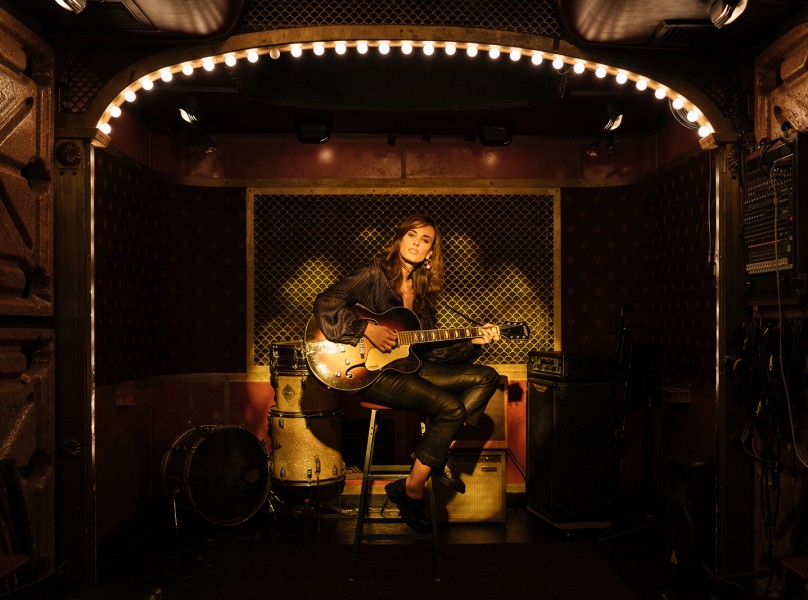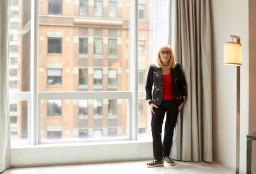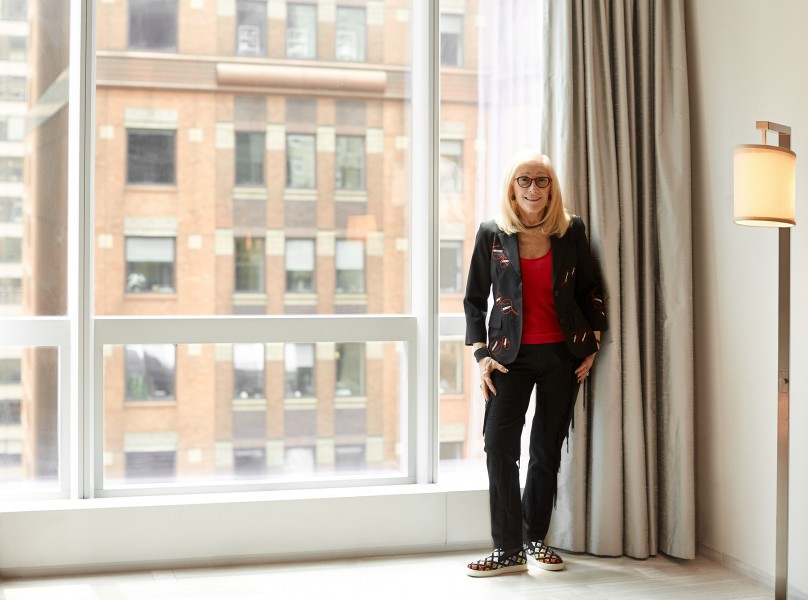The Power Suit
9 years ago by

The pant suit. The epitome of female empowerment (something like that, right?), but is that the only way for a woman to depict her power?
I found myself really thinking about it after the Hillary Clinton power suit outburst. I feel like women have evolved over the years and found alternatives to what can be perceived as a powerful look. I understand women wearing a suit as a sense of protection and authority / control, however I don’t believe that’s the only way to symbolize equality this day in age. A solid pair of denim or black pant, structured cashmere sweater and a sensible heel can be equally strong. To me, a powerful woman is one who appears to be confident, comfortable and at ease with herself. I’m definitely not hating on the power woman suit, in fact I love the concept behind the name, however I would love for women to feel powerful in more ways than one!

























































When I entered the corporate world in late 70’s only the younger women wore a “uniform”: a skirt suit with shirt and floppy tie, pantyhose, and mid heel shoes. As women matured in the workforce they tended to develop their own style. I started to wear St. John dresses and similar items. But always long sleeved and high necklines and never pants. Men wore dark suits exclusively. So to me the pantsuit is the modern version of the skirt suit with floppy tie. Yuck. Maybe as part of your wardrobe but not everyday. There is a way to dress in a serious manner without wearing a uniform.
That maybe comes strange to you but I feel powerful in my Birkenstock slides, It takes that ease that I feel into action, I wore it with my pinstriped suit pants and felt that paradox that I love to feel every day in my looks, here http://www.fashionparadoxes.com/2016/10/27/futuristic-self/
A suit, especially a pantsuit, has many advantages. In air conditioning, you’re covered. Usually the pants are comfortable. There tend to be pockets. They dry clean, so you don’t have to mess with laundering them. There’s a reason why guys have stuck with them–they work. Yes, they’re a uniform, a uniform that communicates power, status, intellect, authority, and that, like all uniforms, makes decisions easy for the wearer. Black or gray?
Inguess it deprnds on the job you have. I am more repaxed and can wear denim with a jacket in everyday working environment or at board meetingns of startup, but in case of more formal board, and I an ralking companies listed on the stock exchange, then is the pantsuit with some eye catching details
I once read about a woman, I don’t remember who, that being in leading position decided to cut out the time spent on choosing what to wear by wearing always the same kind of white button down shirt, black trousers and jacket.
For me, I feel like heels, comfortable ones, help in being proactive and propositive, they make me feel powerful (here in italy there is the stilettoacademy, a movement-website promoting heels and femininity as instruments of empowerment) At the same time, I feel umcomfortable if I wore too feminine items, such as skirts or ruffles or flower prints. (which I adore on a daily basis)…I think it has something to do with having a male boss and the desire to be considered a serious worker more than a nice girl who happens to be a serious worker too…I’m sure that with time I will develop a better confidence with work outfit! by now it’s only blue-grey-black-repeat.
“j’adore le concept, mais j’aimerais que les femmes puissent être prises au sérieux quelle que soit leur tenue !” > je suis totalement d’accord. Le tailleur c’est la manière la plus simple de ne pas se faire regarder pour son statut de femme, mais aussi de ne pas réfléchir à comment on s’habille le matin ! C’est un costume de travail tout simplement, une tenue normalisée comme on en trouve d’autres dans plein d’autres métiers.
Personnellement je n’en mets pas car je trouve ça pas assez joyeux. :D
“Une femme puissante, qui a du pouvoir, pour moi, c’est une femme qui est à l’aise avec elle-même, qui dégage une forme d’assurance” exactement !
Comme dit au-dessus, je pense que le tailleur homme ou femme n’est pas une histoire de pouvoir, mais de convention. Aujourd’hui, les vrais gens de pouvoir sont de moins en moins en tailleur (regarde les GAFA ou Branson), les choses changent. A terme on peut penser que ceux qui mettront des tailleurs finiront par le mettre par choix, et non plus par convention.